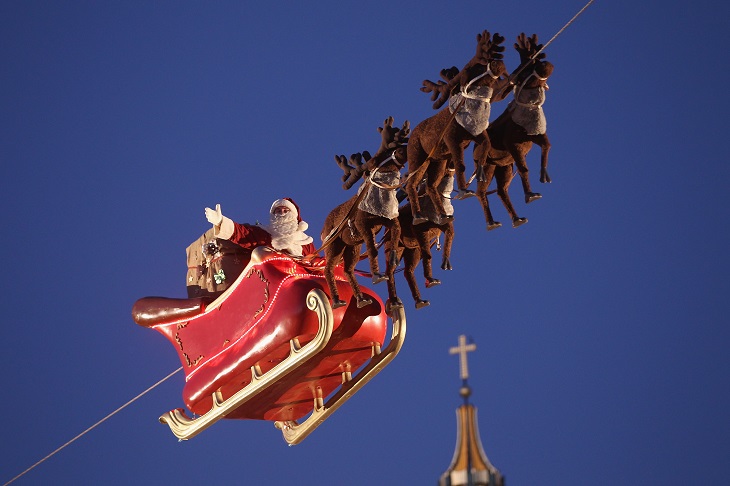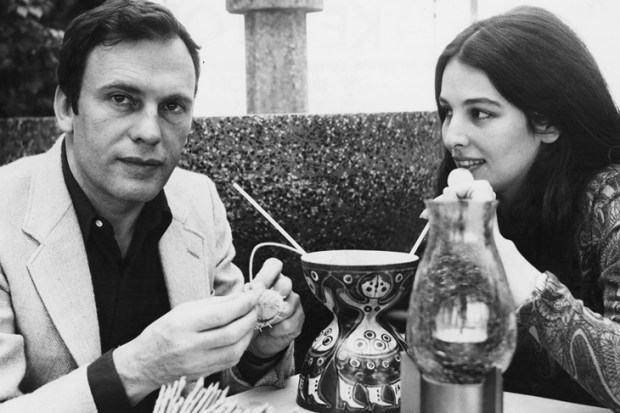Christmas is popular. Nearly every Australian can’t wait to put up their lights and decorations. Retailers rush to sell them as early as possible and tell us all it’s Christmas.
Of course, no one actually says it’s the celebration of the birth of God’s Anointed One, His Divine Son clothed in humanity, born in poverty to a working-class family in Roman-occupied Judea-Samaria.
‘Progressives’ have helped us move on from anything anchored in history.
No commercial or official public observation of the season acknowledges the profoundly spiritual significance, and the fulfilment of the long-prophesied life and mission of Jesus the Christ.
Secularists have helped us vandalise the transcendent and scorn anything incomprehensible without the supernatural.
The nations which officially celebrate His birth with two extra days off work or penalty rates – a social phenomenon repeated again to remember His sacrificial death – don’t get much reminder of the morally crucial reasons for Christmas, or the pointed lessons we should take from it.
Yet we live in a culture that boasts of its ability to achieve moral excellence without a Moral Law Giver, and proceeds to take great pride in all kinds of immorality and ethical relativism. Christmas should make intellectually honest people so incredibly uncomfortable they demand a resolution to the neo-liberal hypocrisies Christmas exposes.
Instead, we lie about the meaning of Christmas, and fill each other’s heads with all kinds of warm and fuzzy distractions to drown out the voice that won’t go away, that voice which never quits whispering, ‘God is real, and worse, you desperately need Him!’
Anything but the Truth at Christmas.
Here are three culturally confronting things everybody should remember every time they see a Christmas cover-up like reindeer, elves, gingerbread houses, toy soldiers, or ‘happy holidays’.
‘Peace on Earth’
When Jesus came to Earth the first time, it was as a servant on a mission to solve a problem. The problem was there was no possibility of peace between humanity and God. The solution was always going to be Jesus giving His life 33 years later in the place of you and me to satisfy divine justice for our multiple moral failures and restore the possibility of peace between us and God.
It was knowing this that a vast, heavenly army of angels appeared to the shepherds the night of His birth announcing, ‘Glory to God in the highest, and on earth peace among people with whom He is pleased!’
Not coincidentally, those shepherds worked in the village where lambs were specifically born and raised for future sacrifice in the temple for people’s sins, according to Jewish law. This pointed to the purpose of Christ’s birth and life mission, and so the meaning of Christmas.
The culturally confronting lesson here is one Jesus later taught, and that is that everyone ‘who does not believe has been condemned already, because he has not believed in the name of the one and only Son of God’.
The Good News of Christmas is that’s not the end of the story, but just the beginning. God saw us already condemned, and sent His Son to earth to be born miraculously and to miraculously make peace possible between us and God.
‘Wise men with three gifts’
No, there weren’t three wise men, or three kings, and they didn’t visit baby Jesus in the manger.
A class of wise men and priests who were astrologers, also known as ‘magi’, travelled from the Persian kingdoms of the Middle East, a few years after Jesus was born.
There’s no way such wealthy elites would have risked travelling in a small group of three, and it’s implausible their caravan would have brought small quantities of gifts to present to Someone they described as ‘born King’ Who they came to worship.
They brought three types of gifts, and instead of teddy bears, baby rattles, or toys, each of the gifts was prophetically symbolic of the significance of this unique child’s birth and life mission.
Gold, frankincense, and myrrh were extremely precious gifts, more helpful for a king than a baby. Gold certainly symbolised Christ’s royalty and is easily recognised as bestowing great honour as well as wealth on what was probably previously a not so well off family. It’s unlikely they tossed Him their spare change in coins.
Frankincense is an aromatic resin that was more expensive in those days than the average home could afford to use as air freshener in the outhouse. It was used in Persia as incense in ceremonial worship of a deity. In this way, the magi demonstrated their understanding of not only Jesus’ royalty, but His Divinity.
Myrrh was used in the ancient world as a perfume and anointing oil, and was also used in healing. Most importantly as it relates to the meaning of Christmas, it was an ingredient in the mixture of spices that was used to prepare bodies for burial.
These gifts together indicate that the Divine King of the Universe humbled Himself as humanity with a mission to give His life to save the world.
Christmas is not about whatever you want it to be about.
‘Santa Claus’
Santa’s name, adapted over various cultures to modern sounds we find harder to understand in English, was actually Saint Nicholas. Say that with an exaggerated Scandinavian accent out loud and you may see the similarity, depending on how well you do Swedish impersonations.
Saint Nicholas was the Christian Bishop of Myra, in modern-day Turkey, about 300 years before imperialist Islam was invented. History tells how he was born to wealthy parents, gave away all his wealth to the poor and oppressed, and was jailed just for being Christian (like Essendon FC and the Victorian Liberal Party do)…
Santa Claus was the first pro-life Christian activist. Upon his release from jail, he preached against killing unwanted babies, a common practice then too. Many babies were conceived in sexual rituals at the Temple of Diana. Locals eventually pulled down and destroyed the pagan temple, convicted by Santa’s preaching.
I love Santa Claus: a real, historic person and an unapologetic, public Christian whose love for Jesus confronted and helped change culture. We need more culture warriors like him today!
Far from letting Santa distract you or your kids from the real meaning of Christmas, let his story remind you that Jesus was born, lived, and died to destroy the curse of sin and evil. His sacrificial death then invited people around the world to peace: restored friendship with God in such a way that it lifts up people and nations brave enough to confront their sinfulness.
The lessons Christmas teaches our culture is that we’re not okay. We’re sin-infected and already condemned without the opportunity Christmas represents to make peace with God, as the angels testified to shepherds who knew exactly the blood price which sin demands.
It teaches that Jesus was not just a man, but the Divine King of Kings Whose birth was the beginning of a mission to die so that we might have eternal life.
Christmas is not just a time for family and penalty rates, prawns, and backyard cricket. Santa teaches us it’s a confronting celebration of the One Who has the power to shatter false religions and calibrate cultures to the Kingdom of God. His Gospel brings hope for real justice, liberty, peace, and mercy to citizens and societies that are willing to honestly hear the sermon of Santa’s life: the real meaning of Christmas to culture.
Got something to add? Join the discussion and comment below.
Get 10 issues for just $10
Subscribe to The Spectator Australia today for the next 10 magazine issues, plus full online access, for just $10.


























Comments
Don't miss out
Join the conversation with other Spectator Australia readers. Subscribe to leave a comment.
SUBSCRIBEAlready a subscriber? Log in